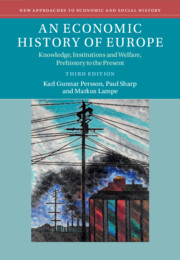Refine search
Actions for selected content:
879 results
19 - English Kingship in a European Context
- from Part V - Reflection
-
-
- Book:
- The Cambridge Companion to Late Medieval English Kingship
- Published online:
- 03 November 2025
- Print publication:
- 20 November 2025, pp 401-422
-
- Chapter
- Export citation
1 - Introduction
-
-
- Book:
- Human Rights in the Digital Domain
- Published online:
- 24 October 2025
- Print publication:
- 13 November 2025, pp 1-8
-
- Chapter
-
- You have access
- Open access
- HTML
- Export citation
The Left–Right Divide in Democratic Disappointment and Support for Populists in Europe
-
- Journal:
- Government and Opposition , First View
- Published online by Cambridge University Press:
- 10 November 2025, pp. 1-23
-
- Article
-
- You have access
- Open access
- HTML
- Export citation
Globalization, Higher Education, and Neoliberal Values: Evidence from the Bologna Process
-
- Journal:
- British Journal of Political Science / Volume 55 / 2025
- Published online by Cambridge University Press:
- 03 November 2025, e145
-
- Article
-
- You have access
- Open access
- HTML
- Export citation

Hunger Redraws the Map
- Food, State, and Society in the Era of the First World War
-
- Published online:
- 01 November 2025
- Print publication:
- 20 November 2025
Chapter 10 - Bloomsbury and the USA
- from Part II - Global Bloomsbury
-
-
- Book:
- A History of the Bloomsbury Group
- Published online:
- 09 October 2025
- Print publication:
- 23 October 2025, pp 155-170
-
- Chapter
- Export citation
Implementation of mental health policies and plans across the WHO European region: Barriers and facilitators
-
- Journal:
- Cambridge Prisms: Global Mental Health / Volume 12 / 2025
- Published online by Cambridge University Press:
- 22 October 2025, e121
-
- Article
-
- You have access
- Open access
- HTML
- Export citation
Latin America and Europe in the Twentieth Century: Looking to The Americas Archives
-
- Journal:
- The Americas , First View
- Published online by Cambridge University Press:
- 17 October 2025, pp. 1-20
-
- Article
-
- You have access
- Open access
- HTML
- Export citation
Revolutionary Self-Determination? Third-Worldism, Anti-Colonialism and Ethnonationalism in Western Europe (1955-1980)
-
- Journal:
- Nationalities Papers , FirstView
- Published online by Cambridge University Press:
- 14 October 2025, pp. 1-16
-
- Article
-
- You have access
- Open access
- HTML
- Export citation
Protection of Human Rights during Involuntary Treatment in Mental Healthcare Services: A European Perspective
- Part of
-
- Journal:
- European Psychiatry / Accepted manuscript
- Published online by Cambridge University Press:
- 13 October 2025, pp. 1-10
-
- Article
-
- You have access
- Open access
- Export citation
Liberal democratic values among immigrants in Europe: Socialisation and adaptation processes
-
- Journal:
- European Journal of Political Research ,
- Published online by Cambridge University Press:
- 09 October 2025, pp. 1-24
-
- Article
-
- You have access
- Open access
- HTML
- Export citation

An Economic History of Europe
- Knowledge, Institutions and Welfare, Prehistory to the Present
-
- Published online:
- 02 October 2025
- Print publication:
- 02 October 2025
-
- Textbook
- Export citation
1 - The Making of Europe
-
- Book:
- An Economic History of Europe
- Published online:
- 02 October 2025
- Print publication:
- 02 October 2025, pp 15-38
-
- Chapter
- Export citation
Democracy and disadvantage: How subjective group relative deprivation undermines democratic support
-
- Journal:
- European Journal of Political Research ,
- Published online by Cambridge University Press:
- 30 September 2025, pp. 1-22
-
- Article
-
- You have access
- Open access
- HTML
- Export citation

Beer Law
-
- Published online:
- 26 September 2025
- Print publication:
- 16 October 2025
Echoes of Empire: The Paintings of Mahmud Khan Malek al-Shuʿarā in Late Qajar Iran (1860–1900)
-
- Journal:
- Iranian Studies ,
- Published online by Cambridge University Press:
- 19 September 2025, pp. 1-20
-
- Article
-
- You have access
- Open access
- HTML
- Export citation
Human Rights Protection in Europe and Russia: Addressing the Implications of Russian Expulsion Under the Statute of the Council of Europe and the European Convention on Human Rights
-
- Journal:
- International Journal of Legal Information , First View
- Published online by Cambridge University Press:
- 16 September 2025, pp. 1-12
-
- Article
-
- You have access
- HTML
- Export citation
1 - Punishment Is Part of Tort Law
- from Part I - The Place of Punishment in Torts
-
- Book:
- Torts and Retribution
- Published online:
- 09 August 2025
- Print publication:
- 28 August 2025, pp 21-49
-
- Chapter
- Export citation
8 - Joyce the European
-
-
- Book:
- The Cambridge Companion to James Joyce
- Published online:
- 14 August 2025
- Print publication:
- 21 August 2025, pp 136-152
-
- Chapter
- Export citation
9 - Brussels 1985
-
- Book:
- Dreams and Songs to Sing
- Published online:
- 07 August 2025
- Print publication:
- 07 August 2025, pp 166-184
-
- Chapter
- Export citation
